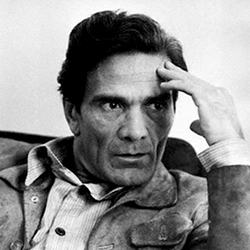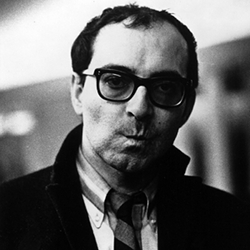
TIFF 2013 Review: La Ultima Pelicula (2013)

Cast: Iazua Larios, Alex Ross Perry, Rene Redzepi
Director: Raya Martin, Mark Peranson
Country: Mexico | Denmark | Canada | Philippines
Genre: Western
Editor’s Notes: The following review is part of our coverage of the 2013 Toronto International Film Festival. For more information on the festival visit http://tiff.net and follow TIFF on Twitter at @TIFF_NET.
It’s over forty years since Dennis Hopper made The Last Movie. A horse wrangler decides to quit film, shacks up with a Peruvian whore, and goes on a cinematic hallucinatory trip while philosophizing on storytelling and the making of movies. It was made during a time when cinema thought it was in the midst of its own demise in the midst of economic and cultural transitions. Raya Martin and Mark Peranson’s La Ultima Pelicula takes this concept and modernizes it (and the documentary on it: American Dreamer), in a time when hipsterdom and the art of the rehash/remake has the world declaring the death of every form of artistic expression.
Alex Ross Perry plays a fictionalized version of himself: a filmmaker who travels to the Yucatan in search of locations for his last movie on the eve of the Mayan apocalypse. His guide, played by a hilarious Gabino Rodriguez, accompanies Perry as he navel gazes about the end of film and contemporary art.
Alex Ross Perry plays a fictionalized version of himself: a filmmaker who travels to the Yucatan in search of locations for his last movie on the eve of the Mayan apocalypse. His guide, played by a hilarious Gabino Rodriguez, accompanies Perry as he navel gazes about the end of film and contemporary art. The film utilizes eight different film formats; interspersing them with various filters and tones to present a sort of deterioration on not just filmmaking, but the state of the materials used in film. Taking this as the background to the endless self-important, stream of consciousness style of dialogue coming out of Perry, it makes for a colourful portrait of film visuals and satirical portrayal of the process of filmmaking.
It takes a lot of introspection and self-absorption to write a book or make a movie: you have to essentially own and dominate the medium and the people you are working with. Perry’s director character, prattles on about how important his work is in the general scheme of things, all the while poking fun at the fake hippies that have converged on Chichen Itza for the end of the world. As people chant empty litanies, Perry endlessly comments on how Westerners appropriate cultures. He does this, of course, while wearing a ridiculous cowboy hat, bandana, and jean jacket in forty degree plus weather. It’s style over substance and substance hindered by style. Some scenes and dialogue are directly lifted from American Dreamer. La Ultima Pelicula is a collage; it’s a portrayal; no, it’s a capricious and frustratingly provocative challenge that isn’t afraid to make fun of itself.
It’s style over substance and substance hindered by style. Some scenes and dialogue are directly lifted from American Dreamer. La Ultima Pelicula is a collage; it’s a portrayal; no, it’s a capricious and frustratingly provocative challenge that isn’t afraid to make fun of itself.
The Mexican landscape provides contrasts to the film: it is eroded, but lush all at once much like the medium that tries vainly to grab at it: for that alone the film is a visceral essay. As Perry and Rodriguez’s insights go from the highly intelligent to the bombastically absurd, it’s hard not to imagine some of the same rambling talk occurring as a director tries to make a case for his cause: “It is important for me to make this important film because only I can do that.”
You neither get close to the subject matter, nor are you totally put off by Perry’s pretentious exclamations. As a filmgoer what keeps you watching the portrayal of the eventual train wreck, is the discordant train, and the train here happens to be comically empty. Why not watch the spectacle?
La Ultima Pelicula may not be the last film ever made, but it’s an interesting and amusing observation of the state of today’s cinema as an expressive medium. Is cinema valid? Sure it is, but let’s not forget, that while film portrays fiction as truth, there is always a bit of truth behind that fiction.
Related Posts
![]()
Jacqueline Valencia
![]()
Latest posts by Jacqueline Valencia (see all)



























